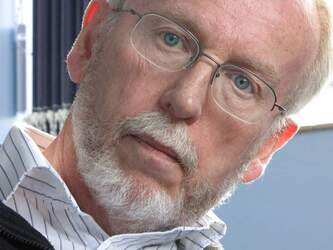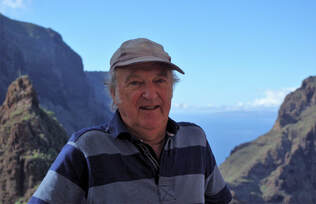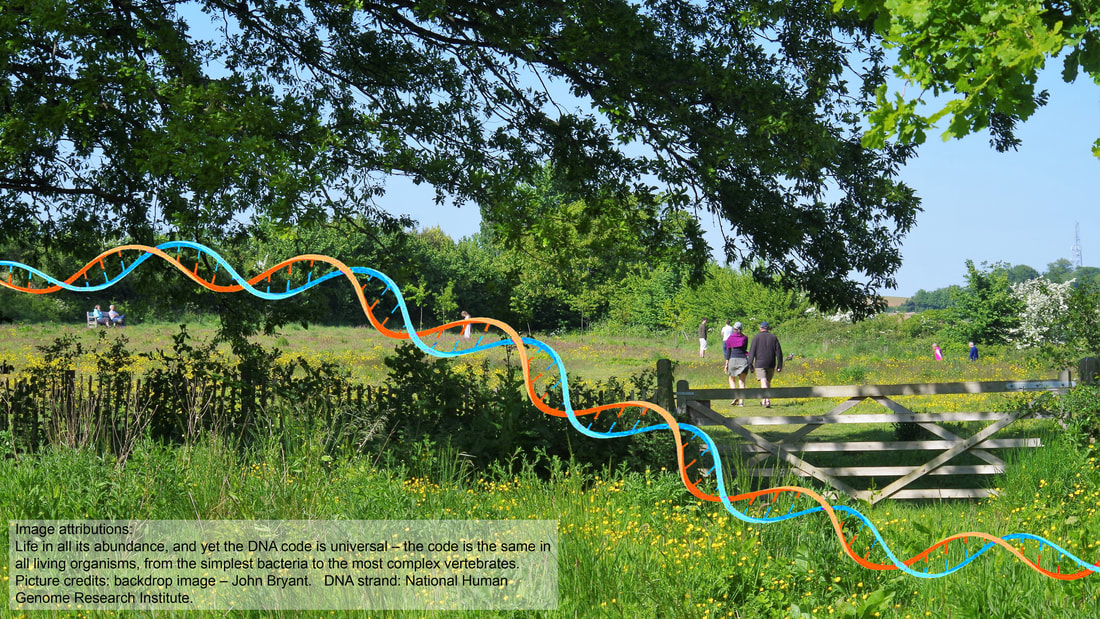|
Dr Graham Swinerd

Graham retired at the end of September 2010 as a 'Reader in Astronautics' from the University of Southampton UK after an eventful thirty-year career in the space sector, both in industry and academia. His Readership, within the School of Engineering Sciences, involved him in the rewarding experience of introducing bright young minds to the fascinating topic of spacecraft engineering and design. During his academic career, Graham was research-active with a focus on orbital dynamics, spacecraft attitude control and the environmental issues associated with space junk in orbit. As well as undergraduate teaching and postgraduate supervision, he led the University’s training programme for the European Space Agency (ESA) for a period of 20 years, to train ESA technical staff in space systems engineering. This provided the opportunity to teach, as one of a number of instructors, at ESA Establishments across Europe, but principally at the ESA Technical HQ at Noordwijk in The Netherlands.
Prior to the period at the University, Graham was employed by (what was then) British Aerospace Space Systems at Stevenage UK, which afforded him the amazing opportunity to work on a number of application satellite programmes. He was also involved in the UK HOTOL launcher system in the 1980s, leading the Space Dynamics Group work on the project. In terms of education, Graham gained a PhD in mathematical physics from the University of Kent at Canterbury in 1975, on the topic of gravitational waves in Einstein’s gravity theory (the general theory of relativity). Throughout his career, he was a Fellow of the Royal Astronomical Society, and later a Member of the Royal Aeronautical Society and a registered Chartered Engineer. However, it was during the busy years at Southampton University that something very surprising happened – he came to faith in the Christian God! How this happened was very much related to the ‘science and faith’ debate, and one of his main motivations for writing this book, with good friend John Bryant, is to put this story on record. This all happened some time ago in late 2001 when Graham was 51 years of age, so it has taken him a long time to complete this journey. Prior to this extraordinary event, he would have described himself as a tolerant agnostic, firmly entrenched in the notion that science had explained everything to the extent that any form of god was entirely irrelevant. Afterwards, Graham’s life has changed – he explains “If you had told me prior to my transformation that I would be doing things like writing a book on science and religion, I would not have believed you!” Of course, the book is not just about Graham’s testimony as can be seen by reading other parts of this website. It also relates what science is telling us about the amazing sweep of history from the Big Bang to life on Earth. In the mix, the authors examine how the ‘God hypothesis’ holds up – or put another way, did it all happen by blind chance or was a divine hand guiding the process? In addition to writing this contribution to the science and faith dialogue, Graham has also written How Spacecraft Fly – spaceflight without formulae, a book for lay-people without a technical background who nevertheless are interested in how spacecraft are designed and launched. He is principal editor of an award-winning technical textbook on spacecraft design (Spacecraft Systems Engineering, Wiley & Sons – released in 4th Edition in August 2011). He has also published over 80 technical papers in refereed journals and authored numerous space conference papers over the years. For more information about the author, please google 'Graham Swinerd' (using www.google.co.uk, or your national equivalent). Professor John Bryant
John has been passionate about biology from as early as he can remember. In primary school, it was ‘nature study’, leading to a love of the ‘great outdoors’ and the plants and animals, especially birds and butterflies, that lived there. He can remember that the metamorphosis (although at that age, this was not a word that he would have used) of caterpillars into butterflies and moths seemed like magic. His interest in biology led him to focus on science – not just biology but also chemistry and physics – in the later years of secondary school, coupled with a strong desire – perhaps a calling – to eventually work as a scientist.
John studied Natural Sciences, followed by a PhD in Plant Biochemistry at Cambridge and these qualifications became the platform for a career in biology. He has spent his whole career within the UK academic sector, holding posts at the universities of Nottingham, Cardiff and finally Exeter, where he was Professor of Cell and Molecular Biology. At all stages of his career John had research collaborations with industrial and government labs in the UK and with university labs in the USA and in mainland Europe. During that time, his research focussed on the control of DNA replication (i.e., copying the genome), mainly in relation to cell division and plant development. He has also done some research on the biochemical and genetic responses of plants to environmental stresses, especially drought. He has published well over 100 academic papers and reviews and 28 books. He is also active in communicating science to a wider public through the British Science Association, Café Scientifique and similar organisations. He is a Fellow of the Royal Society of Biology, a member of the Society for Experimental Biology of which he is a Past-President; he is also a member and former regional Chair of the Biochemical Society. In addition to his academic and research focus on DNA and genes, John has retained his passion for nature and the environment. He has also developed a keen interest in Bioethics – the study of the ethical arising from medicine and biology – and has been one of three advisors on this topic to the UK’s Higher Education Academy. It is an area with a wide public interest and John has extensive experience in addressing school students and community groups and in radio (and occasional TV) broadcasts and interviews. Some of his academic papers and five of his books are on bioethical topics, two of them in a specifically Christian context. John grew up in a Christian home and has been active as a Christian since his teenage years. He has never thought that there was a conflict between his faith and his life as a scientist: science and religion are two different but complementary ways of searching for the truth. He has been an active participant in the science-faith dialogue and is a former Chair of the UK society, Christians in Science. He sees the findings of science as revealing something of the work of God the creator. He is in awe of the beautiful mechanisms involved in the activity and regulation of genes and in the complex array of interactions in the natural world. For more information about the author, please use 'John Bryant Exeter' as a search term in the search engine of your choice (John recommends www.ecosia.org). |

